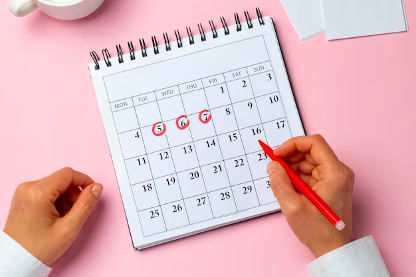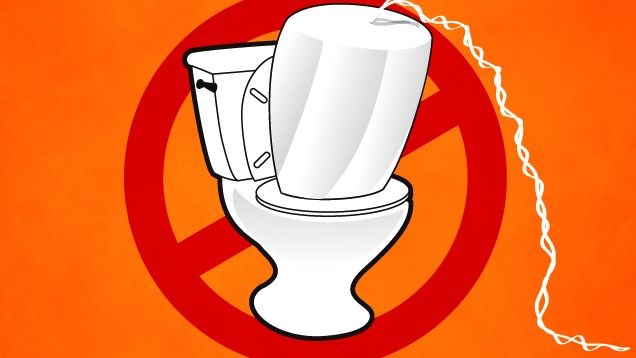Periods. Menstruation. Aunt Flo. The monthly visitor. That time of the month. Shark week. Code red. Lady time. Bleeding time. The monthly cycle. However you say it, one thing is clear: talking about periods can still be taboo in many parts of the world. It’s time to break the silence and address the stigma surrounding menstruation head-on.
What is Period Stigma?
Period stigma refers to the negative attitudes, beliefs, and behaviors associated with menstruation. These can include shame, embarrassment, and secrecy, as well as misinformation and cultural taboos that lead to the marginalization of menstruating individuals. This stigma can manifest in various ways, such as:
- Taboos and Myths: Cultural and religious beliefs that view menstruation as dirty or impure.
- Silence and Secrecy: Encouraging individuals to hide their periods and avoid discussing them openly.
- Discrimination and Exclusion: Limiting participation in certain activities or spaces during menstruation.
- Lack of Education: Insufficient information and education about menstrual health and hygiene.
The Impact of Stigma
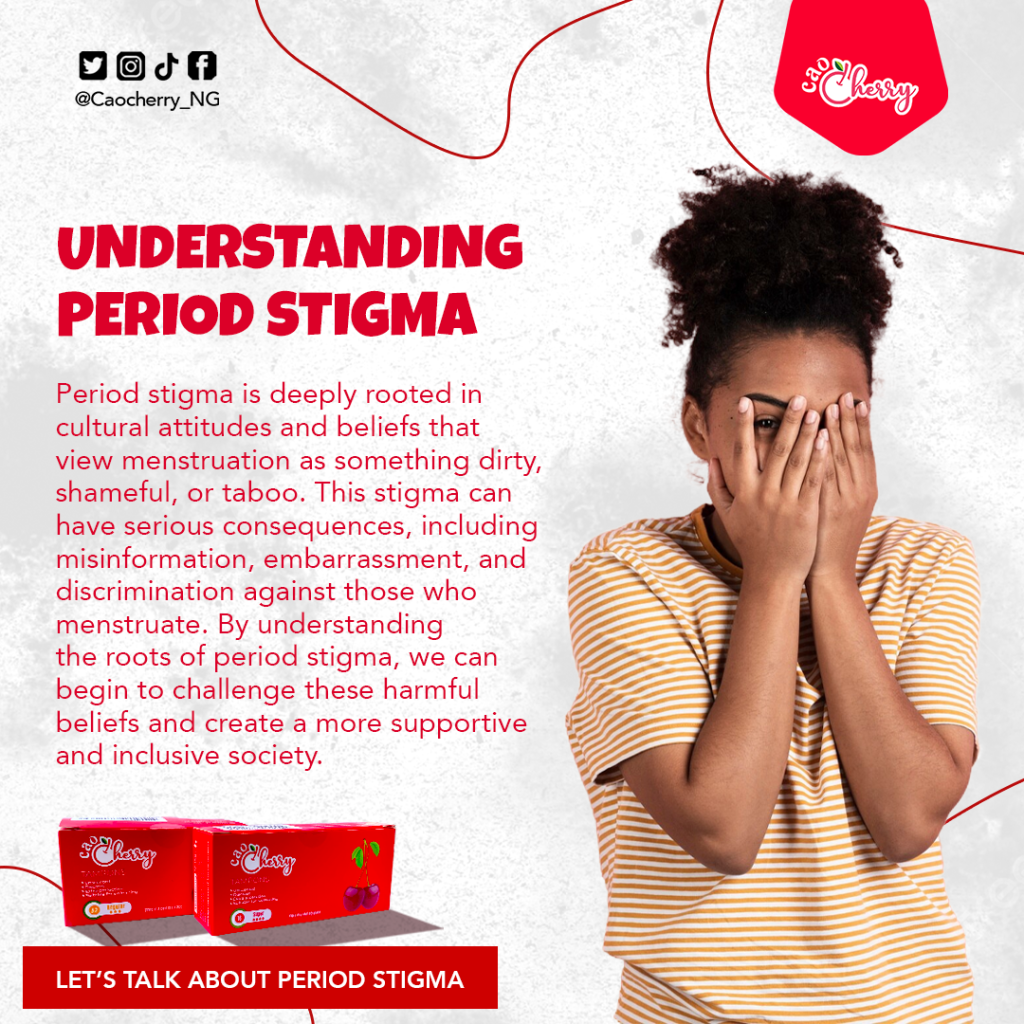
- Shame and embarrassment: Many girls and women feel ashamed of their periods, impacting their self-esteem and confidence.
- Lack of education: Silence surrounding periods creates a knowledge gap, leaving individuals confused and unprepared to manage their menstrual health.
- Negative mental health impacts: Stress and anxiety surrounding periods can affect mental well-being, contributing to issues like depression or social isolation.
Breaking the Cycle
It’s time to break the cycle of silence of period stigma. Here’s how we can all be part of the solution:
- Open Up the Conversation: Normalize conversations about periods by talking openly and honestly with your friends, family, and children. Encourage discussions about menstruation in homes, schools, and workplaces. Create safe spaces where people can share their experiences without fear of judgment.
- Educate Yourself and Others: Education is a powerful tool in dispelling myths and misconceptions surrounding menstruation. By providing accurate information about menstrual health and reproductive biology, we can empower individuals to make informed decisions about their bodies and challenge harmful stereotypes. Education also plays a crucial role in promoting menstrual hygiene and ensuring access to menstrual products for all. Let’s educate and empower.
- Challenging Cultural Norms: Cultural norms and traditions can reinforce period stigma, making it difficult for individuals to talk openly about menstruation. By challenging these norms and advocating for more open and honest conversations about periods, we can help break down barriers and promote period positivity. Let’s challenge outdated beliefs and stereotypes. #PeriodProud
- Media Representation: The media significantly influences attitudes and perceptions toward menstruation. Unfortunately, menstruation is frequently misrepresented or sensationalized, reinforcing negative stereotypes and taboos. By advocating for more accurate and positive portrayals of menstruation in media and popular culture, we can help dismantle period stigma and foster a more inclusive and positive narrative.
- Embracing Period Positivity: It’s time to change the narrative around menstruation and embrace period positivity. Instead of viewing periods as something to be ashamed of or hidden, let’s celebrate them as a natural and healthy part of life. By promoting a more positive and open attitude towards menstruation we can help reduce stigma and create a more inclusive society. Let’s embrace period positivity.
- Join The Movement: Together, we can end period stigma and create a world where menstruation is celebrated, not shame. Join the movement for period positivity. Whether it’s through education, advocacy, or simply talking openly about periods, every action makes a difference. Let’s stand together and make a change.
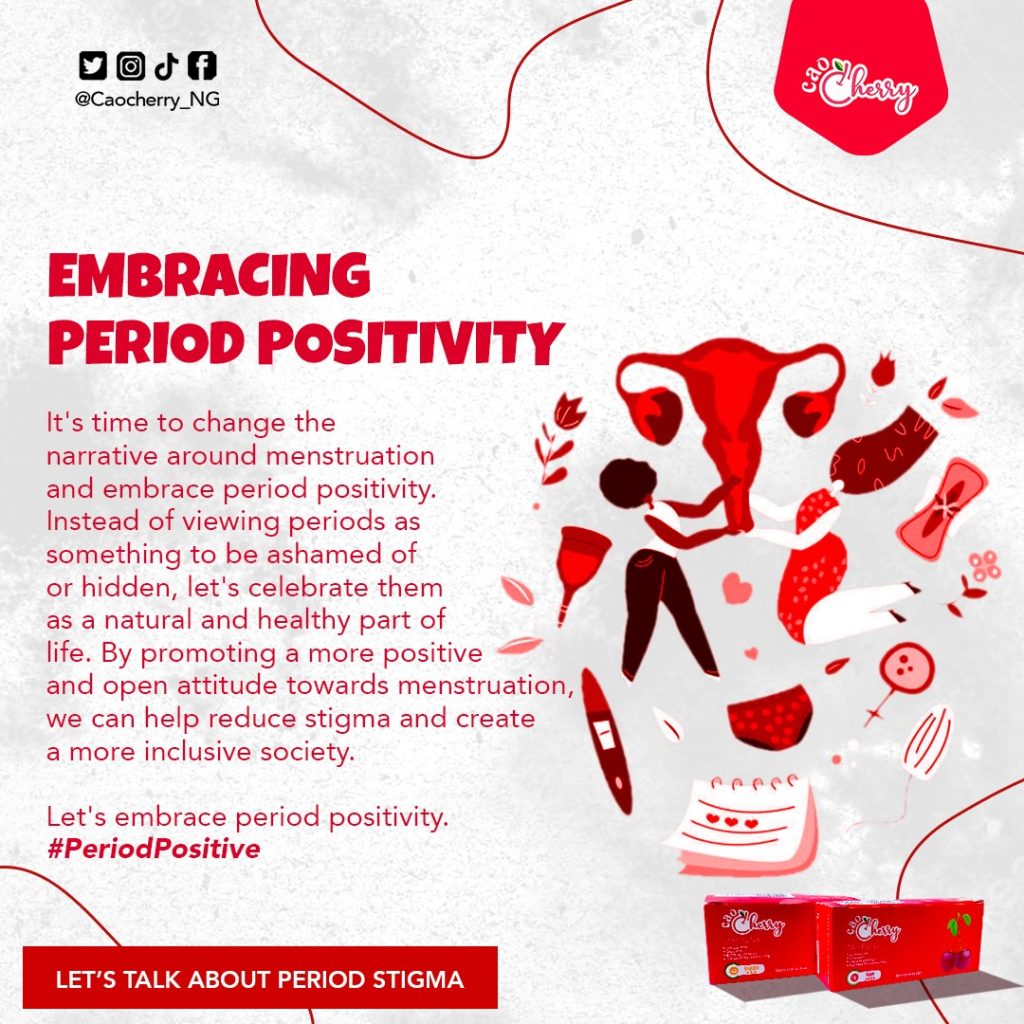
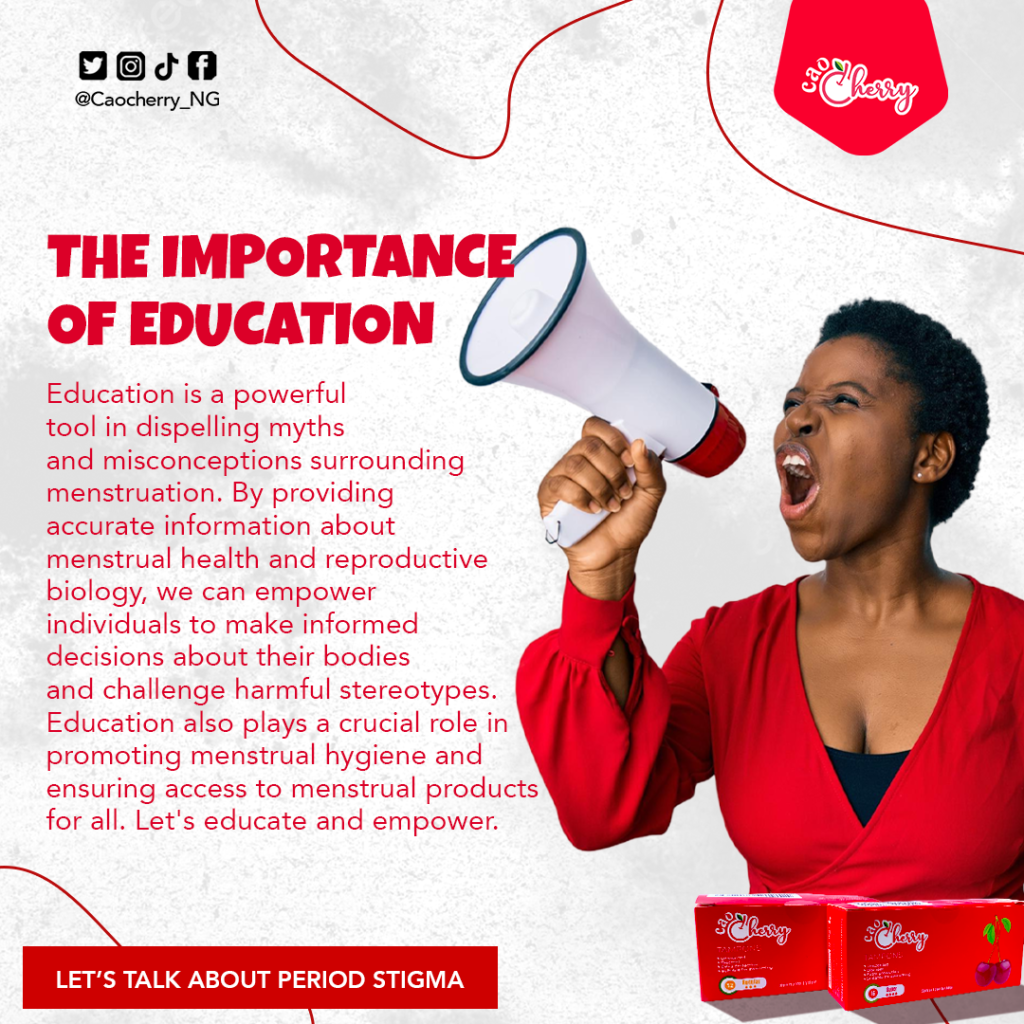
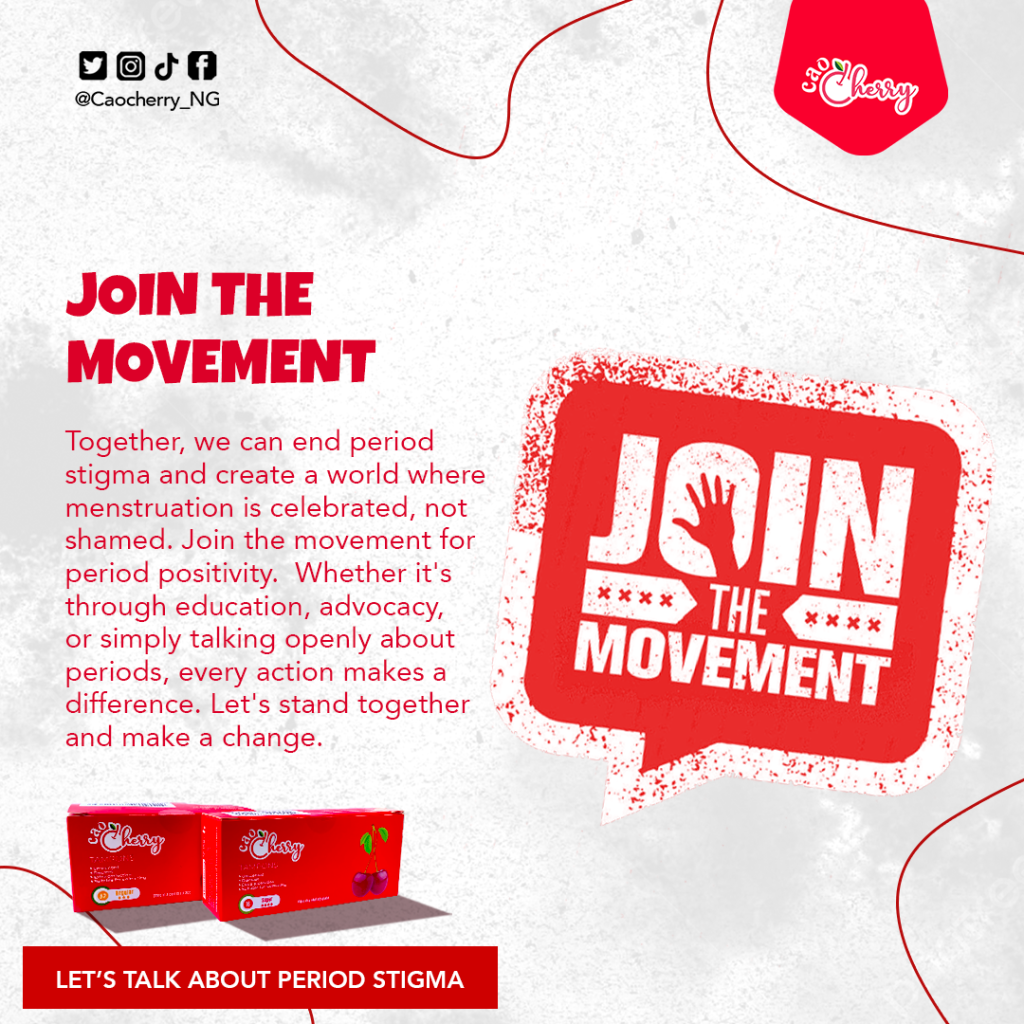
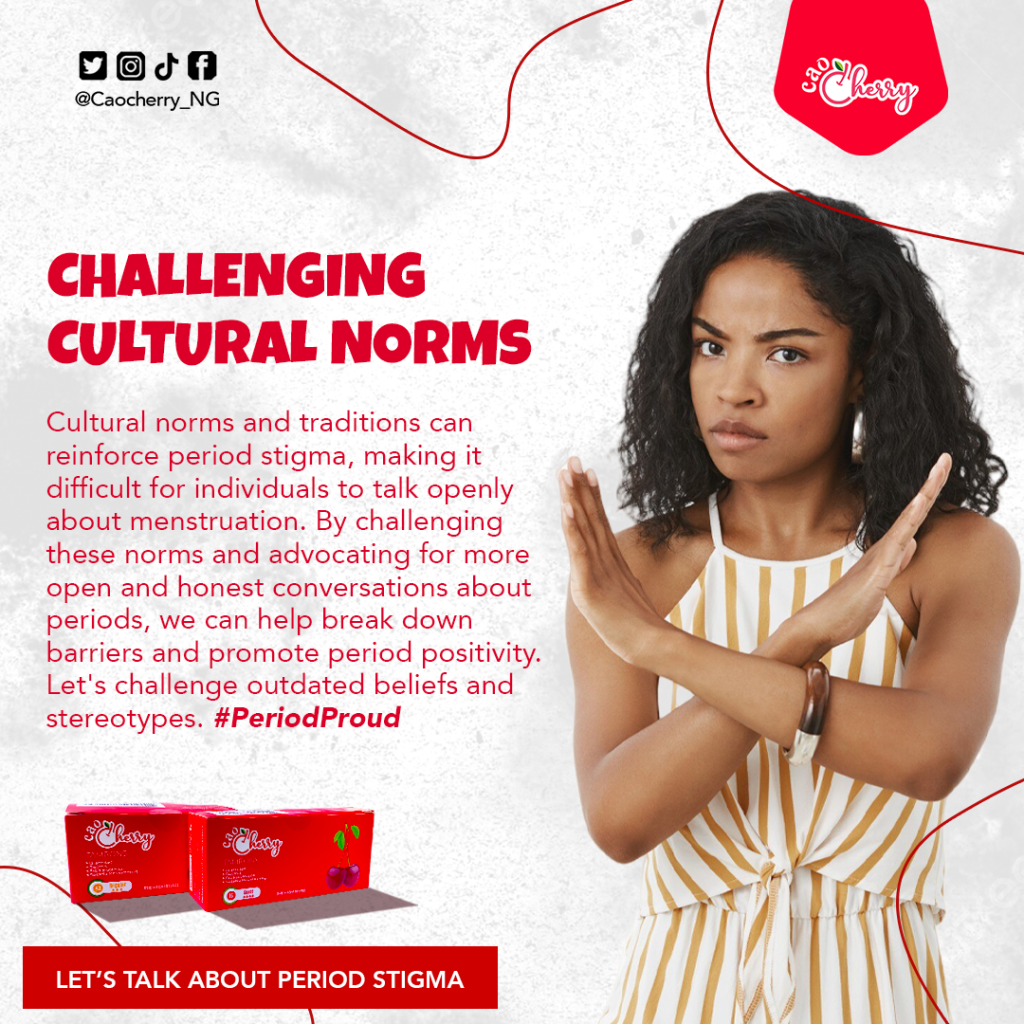
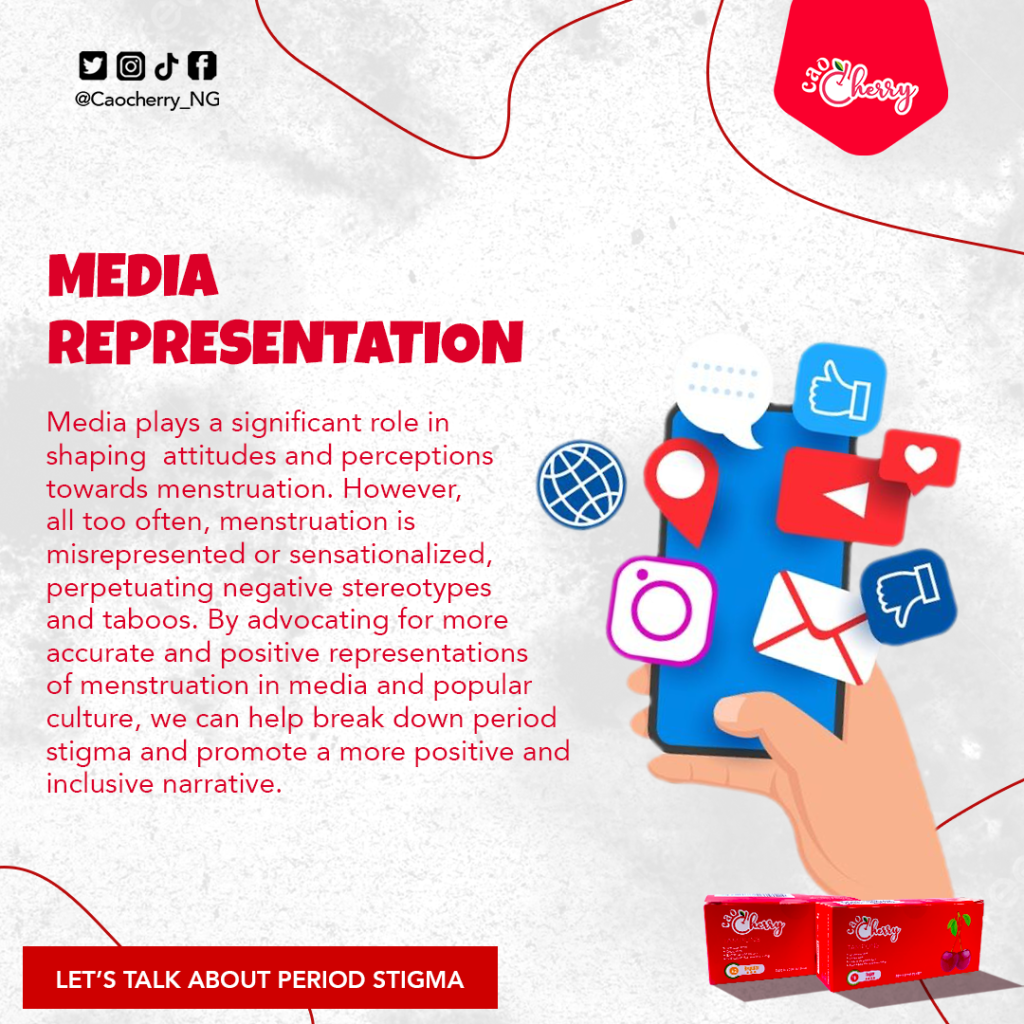
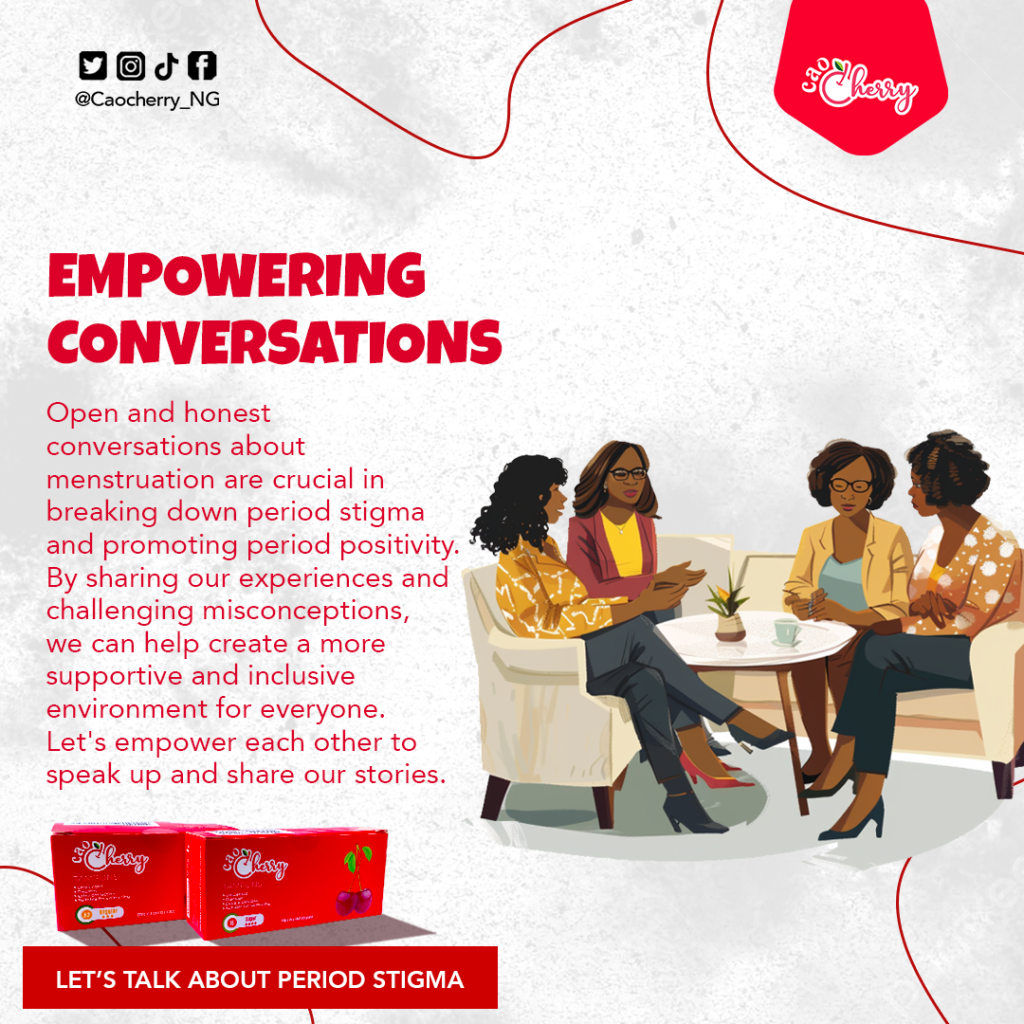
Together, we can create a world where periods are no longer a source of shame and stigma. Let’s embrace menstruation, celebrate our bodies, and empower everyone to have a healthy, positive relationship with their period.

